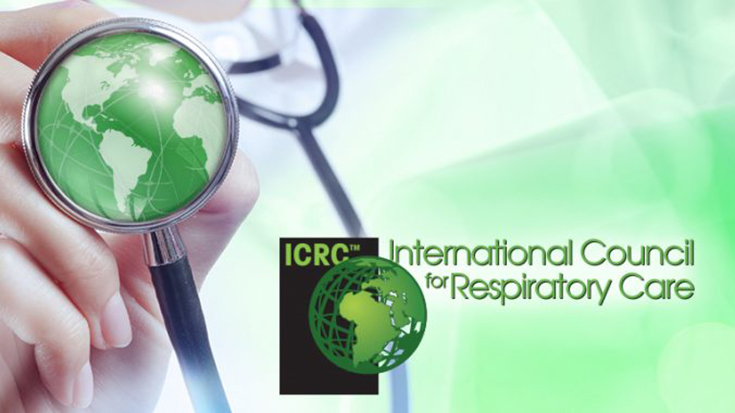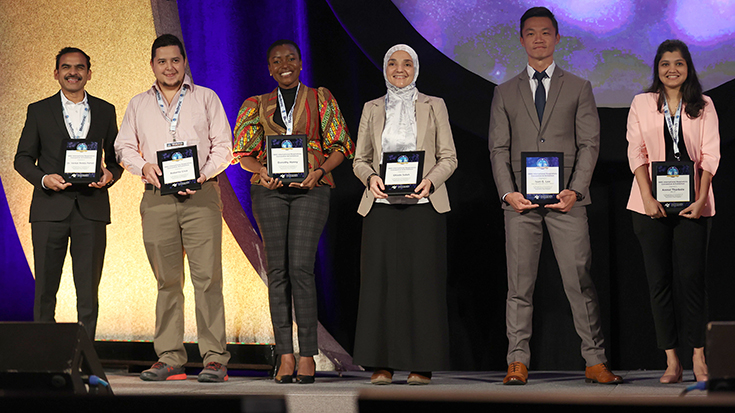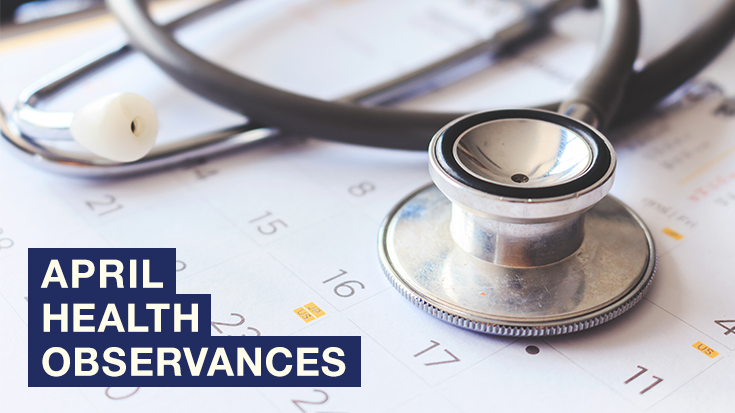
The AARC established a formal presence in international respiratory care with the establishment of the International Council for Respiratory Care (ICRC) back in 1991. In 1994, two leaders in the ICRC — Jerome Sullivan, PhD, RRT, FAARC, and Louis Sinopoli, EdD, RRT, AE-C, FAARC — decided to extend the work of the ICRC to encompass the International Education Recognition System (IERS) as well.
The goal: create a system to review respiratory care educational programs around the globe and endorse those that meet strict standards for educational excellence.
“There are many countries in the world without any formal respiratory care education program,” explained Arzu Ari, PhD, RRT, PT, CPFT, FAARC, FCCP, current chair of the IERS Committee. “In other countries, the respiratory care profession is still in development. The IERS systematically evaluates the objectives, content, infrastructure, assessment strategies, and success indicators of respiratory care education programs to determine how well they achieve their goals and what could be improved in the program.”
Three Levels
According to Dr. Ari, IERS encompasses three recognition levels —
- Level 1 Seminar Recognition is granted to educational non-repeating respiratory care seminars of any length.
- Level 2 Program Recognition is granted to respiratory care education programs that are longer than one day in duration and repeated using the same program content and competency skills each time the program is delivered within a 12-month period.
- Level 3 School Recognition is developed for respiratory care schools that are longer than one year in duration and designed to grant a degree in respiratory care at the bachelor’s degree level or higher from a recognized university in the host country.
All applications go through a thorough review process. “We have 12 IERS reviewers from ten countries on five continents,” said Dr. Ari. “When I receive an IERS application, I assign two reviewers to the application who evaluate the program independently and provide recommendations within two weeks.”
The reviewers submit their recommendations to her, and she reviews them and shares them with the applicant institutions. “Most applications require revisions, and I ask the applicants to revise their programs based on the reviewers’ recommendations,” she said. “Then, the same reviewers evaluate the program again to ensure their questions were addressed, their recommendations were implemented in the program, and all IERS criteria are met in the revised application.”
Dr. Ari works closely with each applicant throughout the process, keeping them informed of their application’s status and helping them resolve any problems that may have been identified by the reviewers. “I let them know they are not alone in solving the issue, and we will work together to generate practical solutions,” she said. “Effective communication and a positive mindset are keys to solving any issue.”
Dr. Ari stresses it is a friendly process, and the upshot is, so far, the IERS has never had to decline any applications made to the program.
Educational Validation
As CEO of Scribe, an Egyptian company specializing in the organization of medical events, Mahmoud Abbas, MD, is no stranger to the need for educational validation. Since 2013, he has received IERS recognition 12 times for conferences and courses in fields ranging from pulmonary medicine and respiratory care to critical care medicine.
“Accredited medical education is important for clinicians in general,” he said. “It adds value and ensures that the educational program is sound and meets standards of quality and excellence.”
Dr. Abbas believes clinicians who take part in his programs appreciate that fact. “Clinicians have a lifelong commitment towards learning and they are continuously acquiring new knowledge and skills to thrive in a very competitive and demanding profession,” he said. “They recognize that acquiring up-to-date knowledge is a product of an accredited educational program that will meet their professional needs.”
Huiqing Ge, MD, is the director of respiratory therapy at Run Run Shaw Hospital school of medicine at Zhejiang University in Hangzhou, China, and a professor in the department of clinical medicine at Zhejiang City University in Taiwan. Her organizations have applied for IERS eight or more times since 2018 but have been hosting educational sessions since 1997. “So far we have held nearly 30 sessions and trained nearly 5,000 students,” she said. “The respiratory therapy training course has been continuously optimized and has been highly praised by the domestic professional field.”
She believes IERS recognition has helped her group further their understanding of the requirements that must be met to produce high-quality training programs. She also believes getting the IERS stamp of approval raises the stature of their programs in the eyes of the medical community as a whole.
“The approval of our educational program is also a recognition of our educational program,” she said.
Chia-Chen Chu, PhD, RRT, FAARC, technical director of the RT department at China Medical University Hospital and an assistant professor at China Medical University in Taichung City, Taiwan, has assisted facilities and organizations in China and Taiwan with their IERS applications 16 times since 2011, including the respiratory therapy bachelor’s degree program at China Medical University, which earned Level 3 recognition.
“It indirectly assures participants that the seminar, training course, or school course they are attending is of an up-to-date standard,” said Dr. Chu.
A Learning Experience
Both Dr. Abbas and Dr. Ge view the application process as a learning experience.
“Going through the process of IERS application is of great value as it ensures the right design of the educational activity which meets the learning objectives of the event,” said Dr. Abbas. “Preparing a clear list of learning objectives that will be delivered and selecting a panel of competent skilled faculty to deliver the educational program is central for preparing a successful application.”
He says the comments his group has received from the IERS reviewers have added new dimensions to the content of their events and allowed them to polish their approach when submitting new applications. “I have to commend the reviewers’ valuable advice they have offered to us,” he said.
Dr. Ge has found the application process to be reasonable and appreciates the focus it places on ensuring a high-quality program.
“In the application process, it is necessary to design the corresponding curriculum and training methods based on the theme of the training project and the training objective, and review the test and training effect of the trainees,” she explained. “The rationality of the curriculum and the effectiveness of the training method are important and one of the main factors in the acceptance of the application.”
Quick Turnaround
Dr. Ari says most applicants will receive final approval for their programs within about two months, and she credits that swift turnaround to the support the IERS receives from the IERS reviewers, along with the ICRC, AARC, and American Respiratory Care Foundation.
“The IERS has become popular over the years and the number of applications we receive keeps increasing every year,” she said. “We are also immensely proud of having applications from the same group of colleagues every year. It is just an indication of how valuable the IERS recognition is in their respiratory care education programs.”
Dr. Abbas and Dr. Ge encourage their colleagues seeking recognition for their educational programs and events to consider the IERS.
“I would recommend IERS to other educators and conference program education committee members, especially for the training methods and norms of respiratory therapy, and to continuously optimize the training program during the application process,” said Dr. Ge.
According to Dr. Abbas, “It is the stamp of quality that ensures delivering the right educational programs.”
Learn much more about the International Education Recognition System here.
Email newsroom@aarc.org with questions or comments, we’d love to hear from you.
















